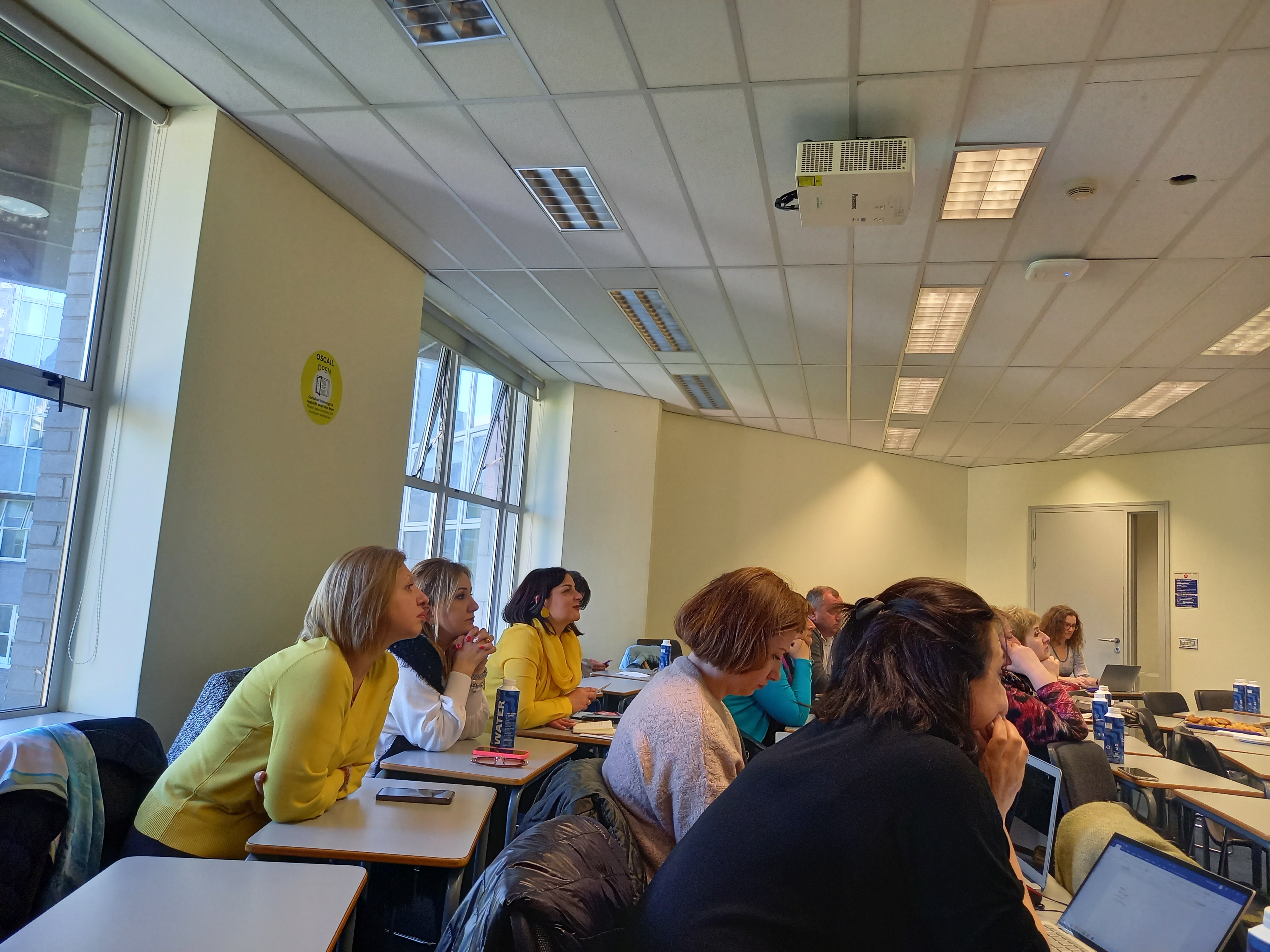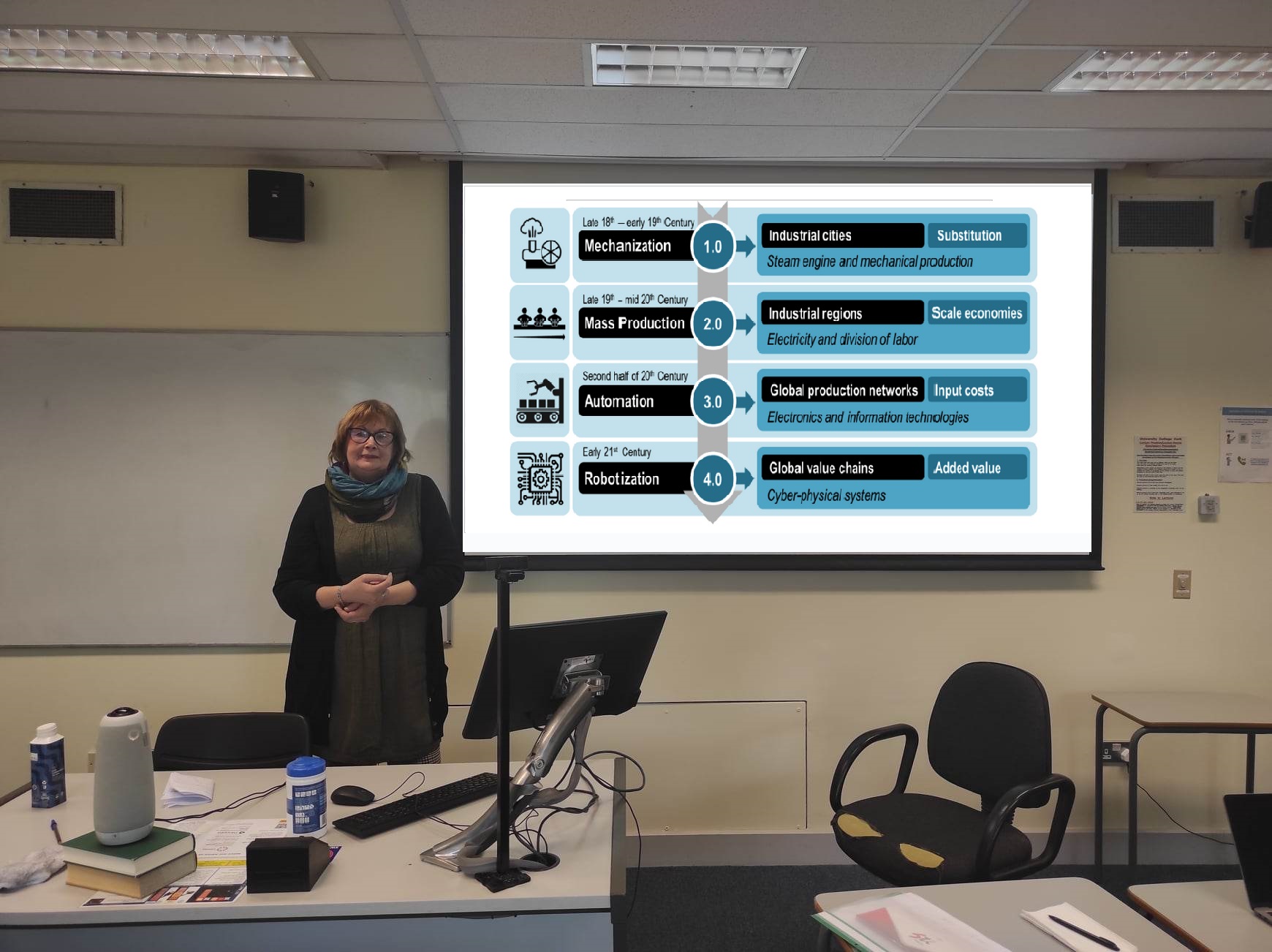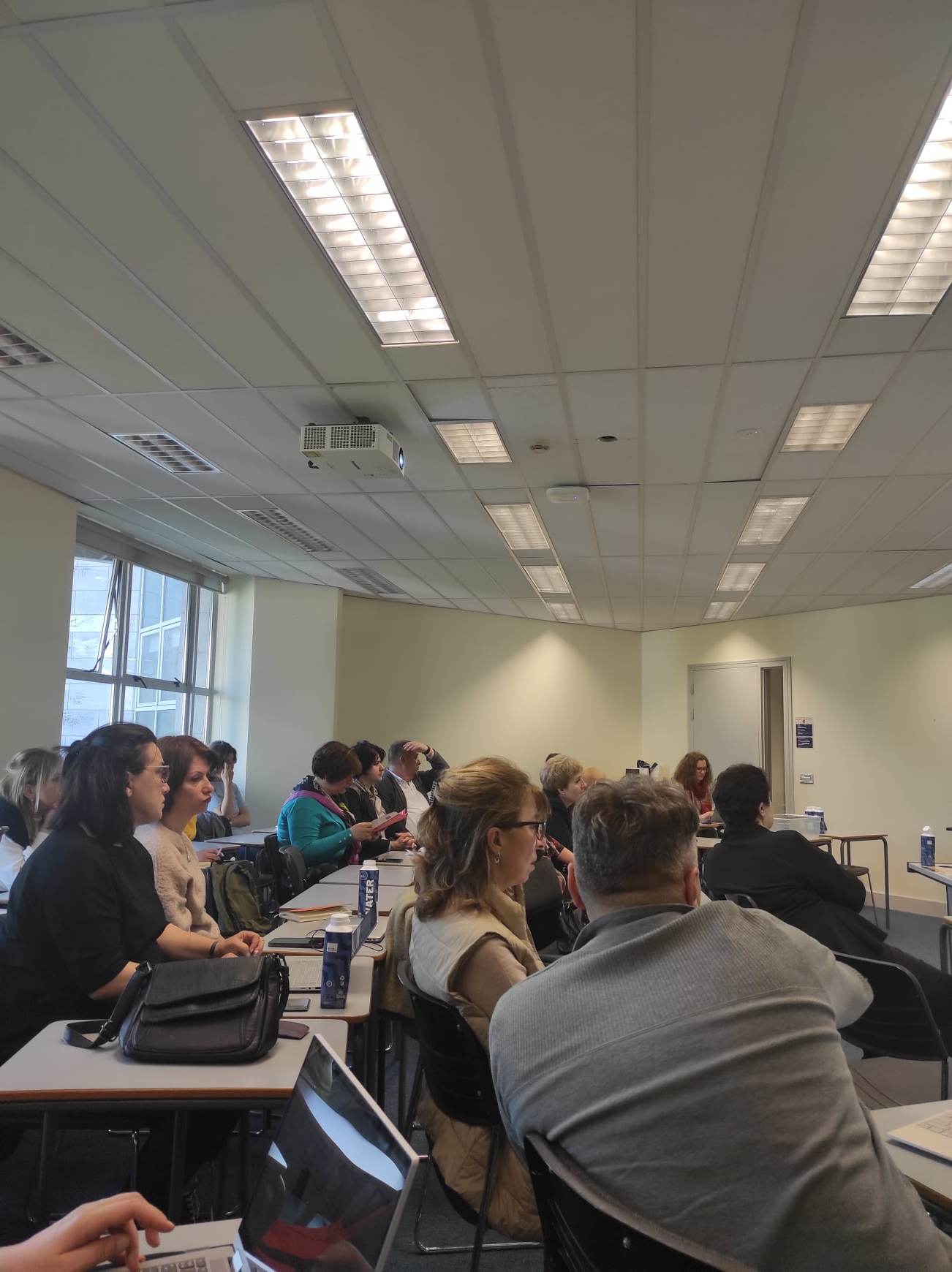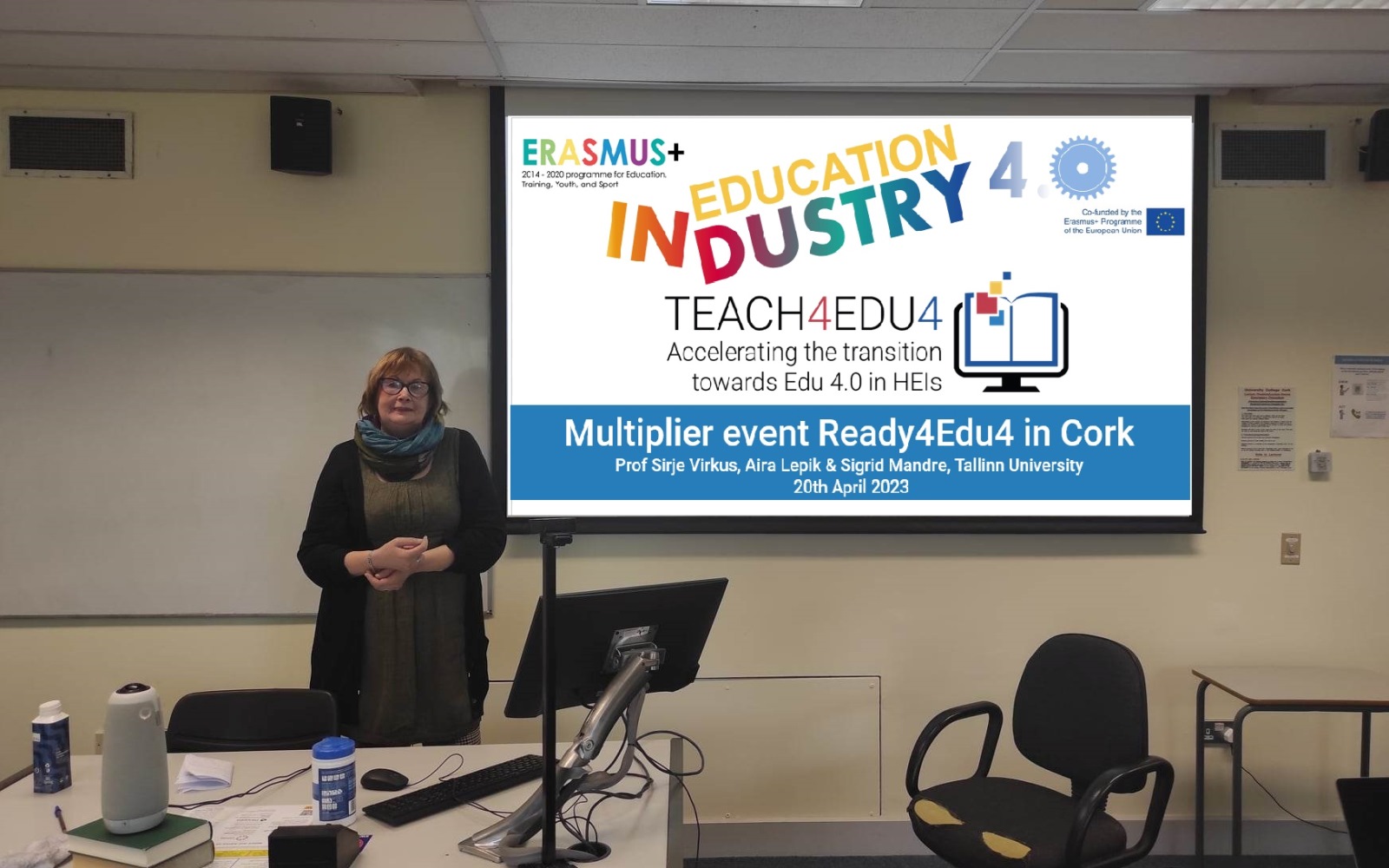Multiplier event in form of further dissemination outside Tallinn University was organized by Prof Sirje Virkus, Aira Lepik & Sigrid Mandre, Tallinn University on 20th April 2023, with 31 participants (3 from Estonia and 28 from other countries – Georgia, Lithuania, Ireland).This event included presentation of the TEACH4EDU4 project activities and the results: what is Edu 4.0 and Industry 4.0, new forms of teaching, learning and assessment in Edu 4.0, learning design models in Edu 4.0, joint Creative Classrooms and learning analytics in Edu 4.0 with discussions on topics transferability of the developed models and what should universities do in the context of Industry 4.0 and Industry 5.0.
The TEACH4EDU4 project activities and results presentation covered a range of topics related to Edu 4.0 and Industry 4.0. The presentation explored the concept of Edu 4.0 and its relationship with Industry 4.0, highlighting the need for new forms of teaching, learning, and assessment that are tailored to the demands of Industry 4.0. The presentation also discussed learning design models in Edu 4.0, emphasizing the importance of Joint Creative Classrooms and learning analytics
Participants were highly appreciative of the event, finding it informative, engaging, and well-organized. The attendees valued the opportunity to engage in discussions with fellow educators, fostering a sense of community and shared learning. The participant expresses extreme excitement about the concepts of EDU 5.0 and Industry 5.0, they see it as a futuristic integration of education and industry with mind-blowing possibilities. EDU 5.0 represents a paradigm shift, merging traditional learning with cutting-edge technology and industry relevance. It focuses on immersive experiences, experiential learning, and collaboration, preparing students for real-world challenges. Industry 5.0 leverages advanced technologies while recognizing the importance of human skills and creativity. The participant is thrilled about the potential of EDU 5.0 and Industry 5.0 working together to bridge the gap between education and industry, preparing students for the evolving workplace. They envision a future where education and industry are interconnected, fostering innovation and creativity. Furthermore, the participants were extremely excited about learning analytics, perceiving it as a dream come true. They highlight the potential of data harnessing to improve education and learning outcomes. Personalizing the learning experience, tracking progress in real- time, and making data-informed decisions are emphasized. The participant expresses enthusiasm for the joint collaborative classroom, highlighting the integration of technology and the opportunity for students to interact with diverse peers. They emphasize the breakdown of cultural barriers, the fostering of understanding and empathy, and the preparation of students for an interconnected world.
Conclusion is, among others, that Universities must adapt and embrace change to prepare students for the challenges and opportunities of the future.



